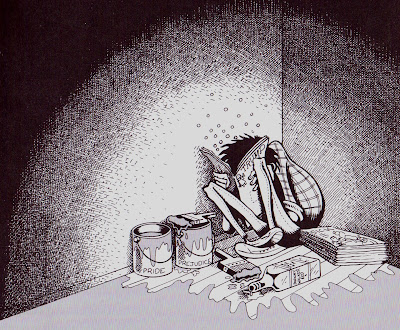Words , phrases show you really mean what you say . Spanish for beginners.
Adding Emphasis to Sentences
Spanish has numerous ways in which it is possible to emphasize the truthful nature of a statement or sentence. Following are some examples along with some possible English translations.
Note that many of these terms are interchangeable, both in the Spanish and in the translation:
- ahora bien (now then): Ahora bien, la situación es que no vivimos ni en tiempos bíblicos. (Now then, the situation is that we don't live in Bible times.)
- claro que (clearly): Claro que es necesario. (Clearly it is necessary.)
de hecho (in fact): De hecho el hierro es más duro que el estaño. (In fact, iron is harder than tin.
de veras (really): De veras me siento feliz de que alguien se tome el tiempo de leerme. (I feel really happy that someone is taking the time to read to me.)
- en realidad (in reality): En realidad todo depende de sus necesidades específicas. (In reality, everything depends on your specific needs.)
- ** es que** (the fact is): Es que no puedo hacer todo el trabajo. (The fact is I can't do all the work.)
- por supuesto (of course): Por supuesto, ocurrirá como el caso de Microsoft y Netscape. (Of course, it will occur as in the case of Microsoft and Netscape.)
- realmente (really): Realmente la aspirina es un salvavidas. (Aspirin is really a lifesaver.)
16 Answers
Otro ejemplo: lo que pasa es que. An extension of "es que" used to negate or qualify a preceding statement.
Por qué estáis enfadados? --Lo que pasa es que es nuestro último día de vacaciones. En realidad estamos tristes.
Why are you angry? --The truth of the matter is that it is our last day of vacation. We are actually sad.
What about...
Estoy bromeando. I am joking.
Te lo digo desde ya... (Literally: 'from now')
I'm telling you 'from' now..
It means: ' I'm telling you this right now and this is serious so you'd better remember '.
Te lo digo desde ya. En esta casa no se tolera ese comportamiento. (I'm telling you right now, you will not act like that in this house.)
It is also used to express that you are not changing your mind. Ever.
Te lo digo desde ya: no pienso ponerme ese vestido. (I'm telling you now, I am not wearing that dress.)
[Feel free to correct my English, please]
We already know that.
Ya sabemos eso.
Es cierto que todo él dijo fue pura bara.
It is certain that everything he said was pure bs (bogus stuff, etc).
Ya lo sé = I know/I know that.
Very common where someone tells you something you are already aware of.
¡Y que! = "So what?"
El papa es católico. ¡Y que! ¡Ya lo se!
Els que el orgulloel prejuicio o la bebida pueden pintar a sí mismo en una esquina.
The fact is that pride, prejudice or drinking can paint oneself into a corner.
Eso es directamente falso.
That's 'directly' false. (a lie).
It is used when you want to say: 'What you said is so false, that I am not even going to elaborate an argument to refute it'.
There is a more standard way to say it. Also more formal. It would be rotundamente falso (completely false).
[Feel free to correct my English, please]
The reality is, it's too hot outside today.
La realidad es que hace demasiado calor afuera hoy.
Realmente quiero aprender español.
I really want to learn Spanish.
Me sabe mal. colloquial phrase of commiseration meaning
"What a shame/I'm sorry for you.
Example: (visit to bar the morning after the night before) ¿Ha encontrado unas gafas?=Have you found a pair of glasses"
Lo siento pero no, me sabe mal pero no hemos encontrado unas gafas ...sólo lo habitual...drogas, navajas, una pistola, claro que si, pero unas gafas, pues, me parece que no. Me sabe mal
Not a literal translation ![]()
I'm sorry, no, what a shame, but we haven't found a pair of glasses, just the usual stuff, drugs, knives, a pistol, naturally, but a pair of glasses, well, I don't think so, what a pity.
"What a shame/pity" can be translated as
Qué lástima
Qué pena
should you want a literal take ![]()
Good post, Ray. I'm just answering so I can find it in "My Answers" when I want to read it again.
I thought of one: a partir de - since. A partir de 2008 dejaron la ayuda internacional y hoy se mantienen. Since 2008 they (have given) gave up international aid and today are self-supporting.
o lo que sea= whatever
Además, había que tener en cuenta a los niños.
I made a flashcard set for this.... I'd appreciate if someone could check it over to make sure I got all of the phrases correct. Some had more than one choice of translation so I wasn't sure which one was better. Thanks!











